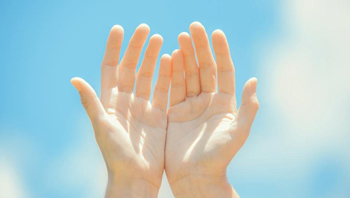Washington, Jan 7: In a breakthrough, researchers have found a way to manipulate wounds to heal as regenerated skin rather than scar tissue by transforming the most common type of cells found in wounds into fat cells.
 Fat cells called adipocytes are normally found in the skin, but they are lost when wounds heal as scars. The most common cells found in healing wounds are myofibroblasts, which were thought to only form a scar.
Fat cells called adipocytes are normally found in the skin, but they are lost when wounds heal as scars. The most common cells found in healing wounds are myofibroblasts, which were thought to only form a scar.
Scar tissue also does not have any hair follicles associated with it, which is another factor that gives it an abnormal appearance from the rest of the skin.
Researchers at the University of Pennsylvania in the US used these characteristics as the basis for their work changing the already present myofibroblasts into fat cells that do not cause scarring.
"Essentially, we can manipulate wound healing so that it leads to skin regeneration rather than scarring," said George Cotsarelis from Penn. "The secret is to regenerate hair follicles first. After that, the fat will regenerate in response to the signals from those follicles," Cotsarelis.
The study showed hair and fat develop separately but not independently. Hair follicles form first and the Cotsarelis lab previously discovered factors necessary for their formation.
Now, they have discovered additional factors actually produced by the regenerating hair follicle to convert the surrounding myofibroblasts to regenerate as fat instead of forming a scar.
That fat will not form without the new hair, but once it does, the new cells are indistinguishable from the pre-existing fat cells, giving the healed wound a natural look instead of leaving a scar.
As they examined the question of what was sending the signal from the hair to the fat cells, researchers identified a factor called Bone Morphogenetic Protein (BMP).
It instructs the myofibroblasts to become fat. This signalling was groundbreaking on its own, as it changed what was previously known about myofibroblasts.
"Typically, myofibroblasts were thought to be incapable of becoming a different type of cell," said Cotsarelis. "However our work shows we have the ability to influence these cells and that they can be efficiently and stably converted into adipocytes," Cotsarelis added.
This was shown in both the mouse and in human keloid cells grown in culture. These discoveries have the potential to be revolutionary in the field of dermatology.
Adipocyte loss is a common complication of other conditions, especially treatments for HIV and right now there is no efficient strategy for treatment.
The cells are also lost naturally because of the ageing process, especially in the face, which leads to permanent, deep wrinkles, something anti-ageing treatments can not fix in a cosmetically satisfactory way.





Comments
Add new comment